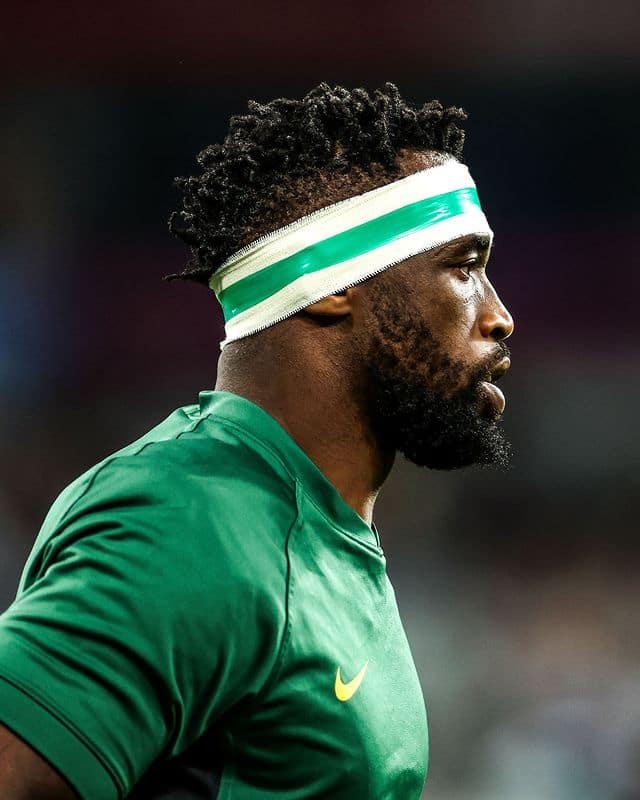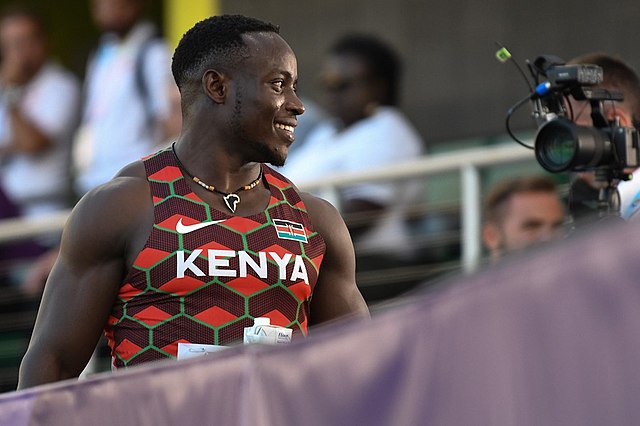Racial inequalities have historically plagued South African rugby. Since its formation in 1891, there has been an obvious lack of representation as white players have dominated the team.
Despite Errol Geroge Tobias breaking the color barrier in 1981, the progress has been slow. This blog post answers the question, “How many South African rugby players are black?”
Become an insider. Subscribe to our newsletter for more top trending stories like this!
People Also Read: How Did Patrice Motsepe Make His Money?
An Overview of Black Players in Springboks
In 1995, Chester Williams was the only black player in the Springboks World Cup-winning team. By the time the Springboks were going to the 2019 Rugby World Cup in Japan, some notable changes had been made.
Over the years, only one or two black players have made it into the team. In 2007, only two black players were part of the World Cup-winning team – winger JP Pietersen and Bryan Habana.
In 2018, Siya Kolisi became the first black rugby player in South Africa to captain the team. He was also the first to lead the Springbok to World Cup glory in 2019.
In July 2019, the team fielded eight black players in the Rugby Championship for the first time in its history. The Rugby Championship is an international tournament played by New Zealand, Australia, South Africa, and Argentina. Additionally, there were three more black players in the team’s reserve.
Out of a squad of 23 players, 11 were black, which means that 48% of the players were black.
Join our Spotcovery Global Black Community Facebook Group for early access to exclusive content and to share in a lively discussion.
Why Have There Been Few Black Players?
During the apartheid era, only white players were allowed to play rugby and represent the national team. That said, the game has since been adopted by the black population. In fact, the Afrikaans are known for their passion for the game.
Despite that, black people are still the minority. This can be traced back to the inability to get black players into the elite level as the former editor of Rugby South Africa Andy Colquhoun explains.
“Those controlling South African rugby are no longer just white – that changed long ago. The problem is getting the top black players to emerge at the elite level. Players like Brian Habana made it at the elite level either by being spotted at the provincial level or by being lucky enough to come from a family that can send them to a rugby-playing school.”
The numbers back his statement. There are more black players at the grassroots level than black players. The junior sides – U19 and U21, are dominated by black players. Unfortunately, many black players don’t make it to the elite level.
Become an insider. Subscribe to our newsletter for more top trending stories like this!
People Also Read: What Happened to Caster Semenya?
What Solutions Are on the Table?
Rugby South Africa vowed to have 50% of black players in the Springbok team by 2019. Former President of South Africa, Thabo Mbeki, supported the policy.
He even stated that becoming a losing team is a price to pay as long as black players are involved. That policy has elicited debate over its effectiveness.
The first black coach of the Springboks, Peter de Villiers, doesn’t think the quotas system is a lasting solution.
“I don’t think quotas are your solution. What bothers me about it is that there is no end period for it. When I was a coach, I never looked at the quotas, I never looked at race. The one thing I was keen on was potential.” De Villers told the Economist.
On the other hand, Chester Williams, a product of the quota system, believes it’s necessary.
“If we don’t have quota systems, things won’t change and players won’t come through the system. In doing that, we have seen a lot of players come through the system and get a chance to play for the Springboks.”
De Villers says that scouting black players from the local communities and integrating them into the system is a more sustainable solution.
Things might not be perfect, but some progress has been achieved in Rugby South Africa to increase the representation of black players.
Interested in watching the full article video? See below. Subscribe to our YouTube channel for more original, inspiring videos on the black experiences.
Nearly 80% of consumers visit directories with reviews to find a local business. List your business for free in our exclusive Spotcovery Black-Owned Business Directory.
Spotcovery offers unique and fresh daily content on Black culture, lifestyle, and experiences. We talk about everything black, black people, black-owned and black-owned businesses. We also deliver authentic and relevant content that will inform, inspire and empower you! The future of black media is critical to today’s black experience! Our primary audience includes African American, African, Afro-Caribbean, and people of African heritage. Black culture is for the culture!
Become an insider. Subscribe to our newsletter for more top trending stories like this!





